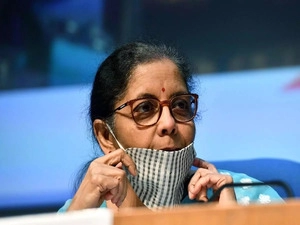25 May 2022
Ten steps the government has taken recently to cool prices

This comes after retail inflation hit 7.8 per cent in April and the wholesale prices crossed 15 per cent reflecting the input cost pressures. The rising food and fuel prices have made the situation worse in the wake of the Russia-Ukraine war.
The shortage of key raw materials and stressed supply lines pose a further challenge to the inflation trajectory.
The RBI, in an off-cycle policy meet, hiked repo rate by 40 basis points and the CRR by 50 basis points. The RBI Governor Shaktikanta Das has hinted that more rate hikes are due in to tame the surging inflation.
The vegetable and fruit prices have shot up as soaring temperatures have singed perishables and led to price rise.
To bring down the prices, the government has taken the following steps:
-
The government announced an excise tax cut of Rs 8 per litre on petrol and Rs 6 per litre on diesel. The government will bear a shortfall of Rs 1 lakh crore due to the excise duty cut on petrol and diesel.
-
Taking a cue from Centre. three states - Kerala, Rajasthan and Maharashtra - also announced reduction in state taxes. The reduction in pump prices of petrol and diesel will bring down the logistics cost for the industry.
-
The government also reduced the import duty on key raw materials and inputs for the steel and plastic industry.
-
The government has levied export duty on some steel products and raised it on irone ore and concentrates. Together with the import duty cut, the price of steel will come down.
-
During the current and next financial year, the government has permitted duty-free imports of 20 lakh tonnes of crude soyabean and crude sunflower oil.
-
Under the Ujjwala Yojana, the government has also granted a Rs 200 per cylinder subsidy. This will benefit around nine crore beneficiaries.
-
The government set a limit of 100 lakh tonnes on sugar exports to ensure that there is adequate stock when the sugar season begins in October to cover three months' worth of consumption.
-
The Centre has also regulated sugar exports to maintain adequate stocks in the country. From June 1, only 10 million tonnes of sugar can be exported in the current marketing year which ends in Septemeber.
-
India slapped a ban on wheat exports to maintain food security and cool prices.
-
Over and above Rs 1 lakh crore budgeted for the current fiscal, the government will provide an additional fertiliser subsidy of Rs 1.1 lakh crore to farmers.
Source: https://economictimes.indiatimes.com/news/economy/policy/ten-steps-the-government-has-taken-recently-to-cool-prices/articleshow/91788429.cms